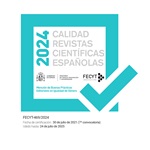Eine annäherung an hate speech und politische intoleranz in der partizipatorischen demokratie der schweiz
Una aproximación al hate speech y laintolerancia política en el sistema de democracia participativa suizo. (RI §416922)

An approach to hate speech and political intolerance in the swiss participa-tory democracy -
David Martín Herrera
Am 21. Dezember 1965 schlug die Generalversammlung der Vereinten Nationen angesichts der konstanten Äußerungen von Rassendiskriminierung und Regierungspolitiken auf der Grundlage von rassischer Überlegenheit und Hass Alarm. Das Resultat dieser Generalversammlung war eine Vereinbarung, die jegliche Propaganda und Organisationen verbat, die auf der Überlegenheit einer Rasse oder Personen einer bestimmten Hautfarbe oder Herkunft basiert, sowie jeden, der zu Rassendiskriminierung aufruft. Ein Jahr später, am 16. Dezember 1966, verkündete dieselbe Versammlung ein weiteres internationales Abkommen, welches jegliche Verherrlichung von Hass aufgrund von Rasse oder Religion und Aufhetzung zu Diskriminierung oder Gewalt verbat. Beide wurden genehmigt und auf internationaler Ebene von den meisten Ländern ratifiziert. Nichtsdestotrotz stehen wir heute, vier Jahrzehnte danach, immer noch ziws-chen Zenit und Nadir. Auch die Schweiz blieb nicht unberührt von gewissen Erscheinungsformen der überlegenheit und des Hasses und die berühmte historische Gastfreundschaft sah sich in den letzten Jahren stark beeinträchtigt; dies einerseits aufgrund der helvetischen Skepsis gegenüber des Völkerrechts im Allgemeinen, und andererseits als Ergebnis des Aufstiegs der rechtskonservativen politischen Parteien, denen es dank Reden und Propaganda in zahlreichen Fällen gelungen ist, den Willen des Völker-, und zeitweise auch des Schweizer Rechtes gegen Minderheiten zu beugen, die sie als bedrohlich für die historischen und kulturellen Schweizer Werte ansehen.
El 21 de diciembre de 1965, la Asamblea General de las Naciones Unidas emitía una señal de alarma ante las constantes manifestaciones de discriminación racial y las políticas gubernamentales basadas en la superioridad y el odio racial. De aquella asamblea surgió un Convenio por el que se condenaba toda la propaganda y toda organización basada en la superioridad de una raza o grupo de personas de un determinado color u origen étnico; declarando ilegales las actividades organizadas de propaganda, y cualquiera que promoviese la discriminación racial e incitara a ella. Un año después, el 16 de diciembre de 1966, la misma asamblea anunciaba otro pacto internacional por el que se prohibía toda propaganda en favor de la guerra, toda apología del odio nacional, racial o religioso que incitara a la discriminación, la hostilidad o la violencia. Ambos fueron aceptados y ratificados ampliamente en el panorama internacional, sin embargo, pasadas más de cuatro décadas continuamos entre cenit y nadir.
Desde entonces, el panorama helvético no ha sido ajeno a las manifestaciones de superioridad y odio. Su constatable histórica hospitalidad se ha visto doblegada en los últimos años; facilitada por un lado, por el escepticismo helvético en la aceptación del Derecho Internacional, y, por otro más influyente, ante la escalada de partidos políticos ultra conservadores, que a través de sus discursos y propaganda han logrado en numerosas ocasiones doblegar la voluntad del Derecho Internacional de los Derechos Humanos y el propio nacional en contra de las minorías que consideran que desafían los valores histórico-culturales helvéticos.
I. EINLEITUNG II.SCHWEIZERISCHE VERFASSUNGSPRäMISSEN UND DIE ANERKENNUNG DES VÖLKERRECHTS III.EXTREMER POLITDISKURS „HATE SPEECH“. IV.HATE SPEECH UND SCHWEIZERISCHE GESETZGEBUNG GEGEN DIE DISKRIMINIERUNG. V.SCHLUSSFOLGERUNGEN VI. BIBLIOGRAFIE.
I. INTRODUCCIÓN. II. PREMISAS CONSTITUCIONALES HELVÉTICAS Y ACEPTACIÓN DEL DERECHO INTERNACIONAL. III. DISCURSO POLÍTICO EXTREMO:”HATE SPEECH”. IV. DISCURSO DE ODIO Y LEGISLACIÓN ANTIDISCRIMINACIÓN EN SUIZA. V. CONCLUSIONES. VI. BIBLIOGRAFÍA.
On December 21 of 1965, the General Assembly ofthe United Nationssent outan alarm signalbecause of the constantmanifestationsof racial discrimination andbecause of thego-vernmental policies basedonracialsuperiority or hatred. Result ofthat assembly was an agree-mentwhichcondemnedall propaganda andall organisationsbased on the superiorityof one race orgroups ofpersons of a specific skincolour or ethnic origin. Itdeclared as illegal allorganised propagandaactivities, and anyonethat would promotetheracial discrimination andincite toit.Oneyear later, onDecember 16 of 1966, the same assemblyannouncedanotherinternational agreementbywhich it prohibitedany propagandafor war, any advocacy ofnational, racial or religious hatred thatincitesdiscrimination, hostility or violence. Both were widely accepted and internationally ratified. However, more than four decades later, we still stand between Zenith and Nadir.
Also Switzerland was not immune to these manifestations of superiority and hatred. Its famous historical hospitality has been affected in recent years; on one hand, due to Swiss skepticism in accepting international law, and on the other, because of the rise of ultra conservative political parties, which, through their speeches and propaganda, have managed in numerous occasions, to incite against minorities by breaking the international law of human rights and the national law. Minorities, who they consider threatening to the Swiss cultural and historical values.
I. INTRODUCTION. II. Swiss CONSTITUTIONAL PREMISES AND ACCEPTANCE OF INTERNATIONAL LAW. III. EXTREME POLITICAL DISCOURSE: "HATE SPEECH". IV. HATE SPEECH AND ANTI-DISCRIMINATION LEGISLATION IN SWITZERLAND. V. CONCLUSIONS. VI. Bibliography.

 DIRECTORA
DIRECTORA